What Happens When You Use Too Many Eye Drops, Doctors Say
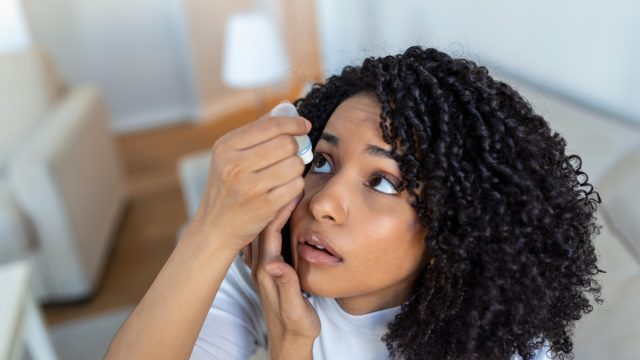
Burning, itching, tearing up: If you suffer from dry eyes, you know how uncomfortable they can be. And if you notice the problem getting worse as you get older, it’s not your imagination.
“Dry eyes are a part of the natural aging process, and thus more dry eyes are noticed in people over the age of 65,” says Matthew Hildebrand, OD, optometrist and clinical director at Kleiman Evangelista Eye Centers of Texas, also noting that “women are more likely to develop dry eyes due to hormonal changes caused by pregnancy and menopause.”
While your first impulse may be to reach for a bottle of eye drops to relieve the scratchiness, using them too frequently—or using the wrong kind—can make the problem worse.
James Kelly, MD, an ophthalmologist at the Kelly Vision Center in New York City, tells Best Life that while he believes everyone should keep their eyes properly hydrated with eye drops, especially during the winter, it’s important to use eye drops correctly, and to know when it’s time to see a doctor about your dry eyes.
What actually happens when you use too many eye drops? Read on to find out what these eye experts said.
READ THIS NEXT: If You Notice This With Your Eyes, Get Your Thyroid Checked, Doctors Say.
Dry eyes tend to get worse in the winter.
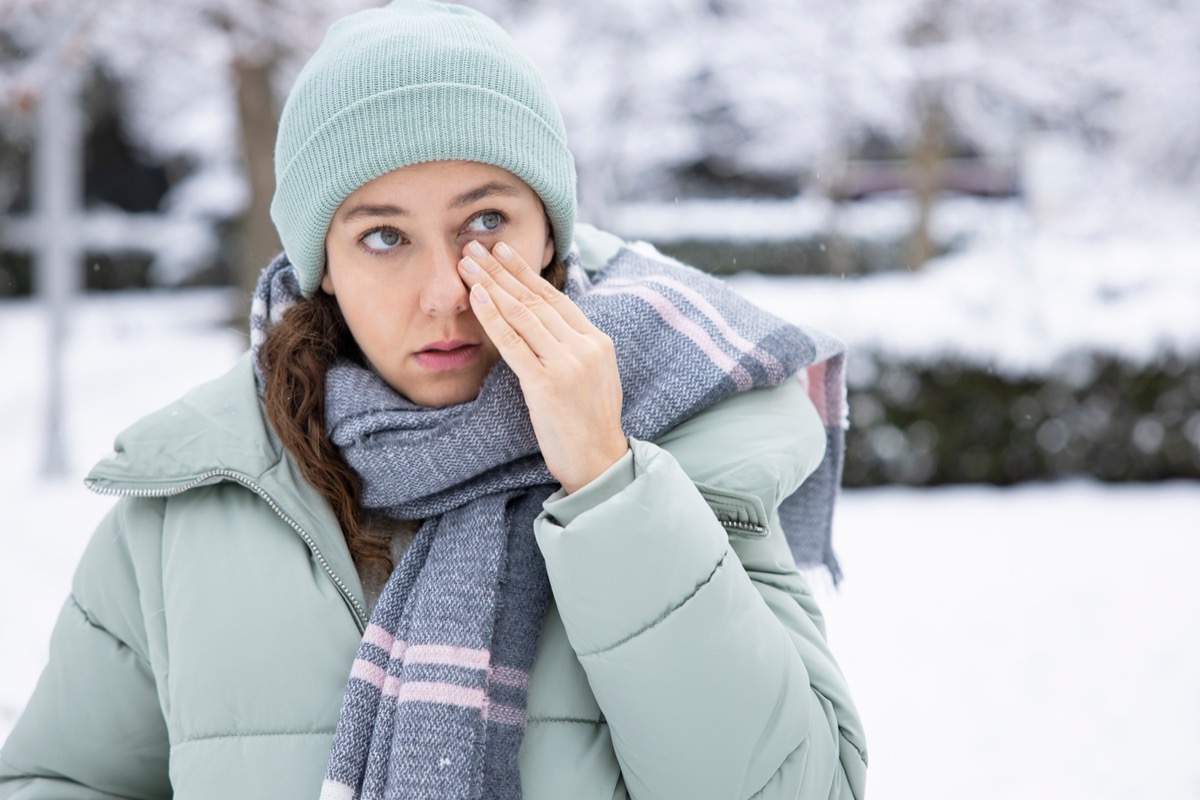
If your eyes feel scratchier than usual when the weather gets wintry, there’s a good reason.
“A number of factors exacerbate dry eye in the winter, including indoor heating systems, low ambient humidity, and generally cold and windy weather conditions,” says Kelly, noting that “dry eye affects an estimated 23 million people nationwide,” and that “those who spend a lot of time looking at their computer, tablet, or smartphone are at a higher risk.” Dysfunctional glands, diabetes, sleep apnea, and certain cosmetic procedures can also cause dry eyes, he says.
“Other causes can be medications such as antihistamines, decongestants, or blood pressure medications,” adds Hildebrand.
It’s important to use the right type of eye drops for dry eyes.
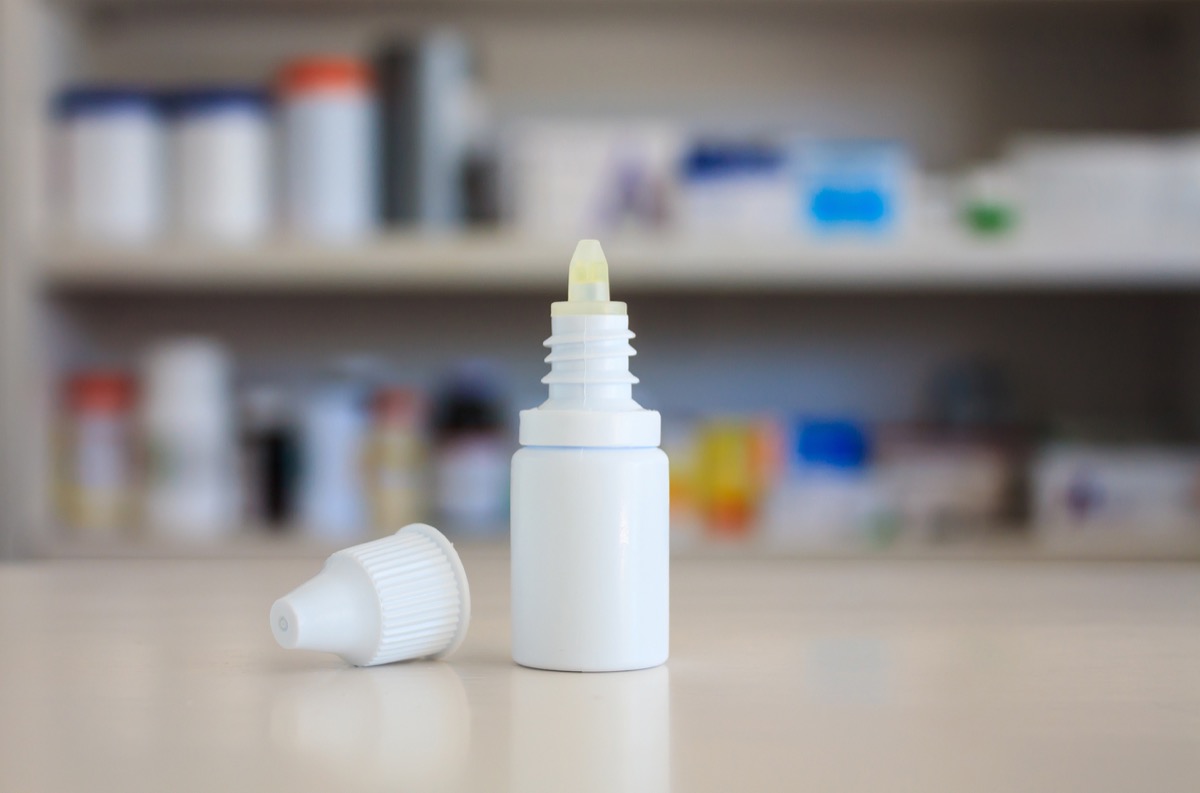
“Typically the first way to start treatment with dry eyes would be to use over-the-counter eye drops, or artificial tears, as I like to call them,” says Hildebrand. “There are an extensive amount of different brands and types of artificial tears. The best ones to use are preservative-free artificial tears. These are the individual vials that most different brands will carry.”
“If the dry eye is more serious, there are prescription medications to help with dryness such as Restasis, Xiidra, or Cequa,” he explains. “There are the wrong type of eyedrops as well, such as Visine or other ‘get the red out’ type products. These do a great job of removing the redness from the whites of our eyes, but … over time it can cause rebound redness, where if you stop the drop abruptly, it can lead to recurrent redness which can take weeks to clear up.”
Hildebrand explains that he prefers the preservative-free artificial tears because they are “better for the eyes” long-term. “The preservatives that are inserted in a normal bottle of artificial tears to help preserve the quality of tears can also irritate the eyes if used for extended periods of time, or too frequently.”
Using eye drops too frequently can make dry eyes worse.
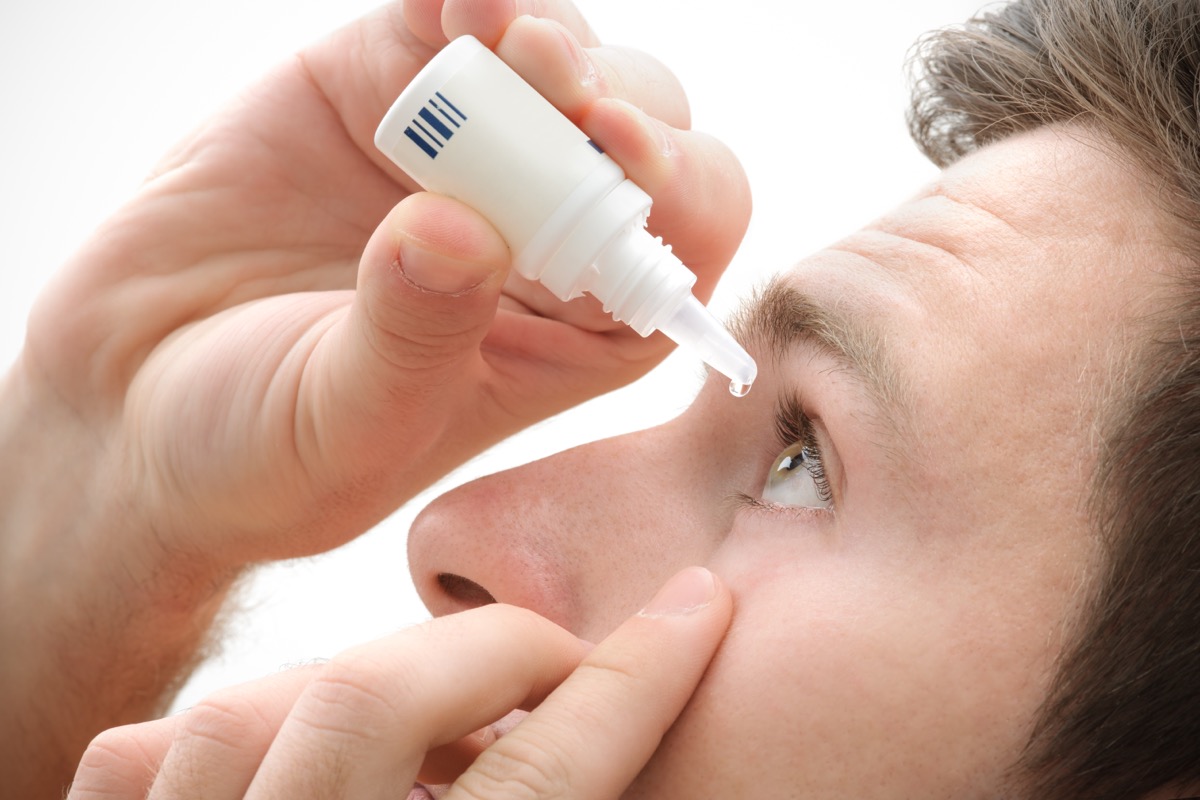
“Using eye drops can help or hurt our eyes, depending on what and how we use them,” Hildebrand explains. “Our tear film is made up of three separate layers: inner mucin, aqueous, and outer lipid layer. For a normal tear layer to help protect the eye, all three layers need to be in perfect balance. If we start to use too many eye drops, this can disrupt that balance, which leads to irritation and pain.”
“Depending on the type of eye drops, overusing them may cause increased redness and irritation,” Kelly adds. “For drops that are intended to decrease redness, overuse of them can lead to a condition known as rebound hyperemia, whereby the eyes become dependent on them and can become even redder when the drops are discontinued. For drops that are intended to lubricate the eyes, overuse can dilute the natural tears and result in increased discomfort.”
For more health advice sent directly to your inbox, sign up for our daily newsletter.
These signs mean it’s time to see a doctor.
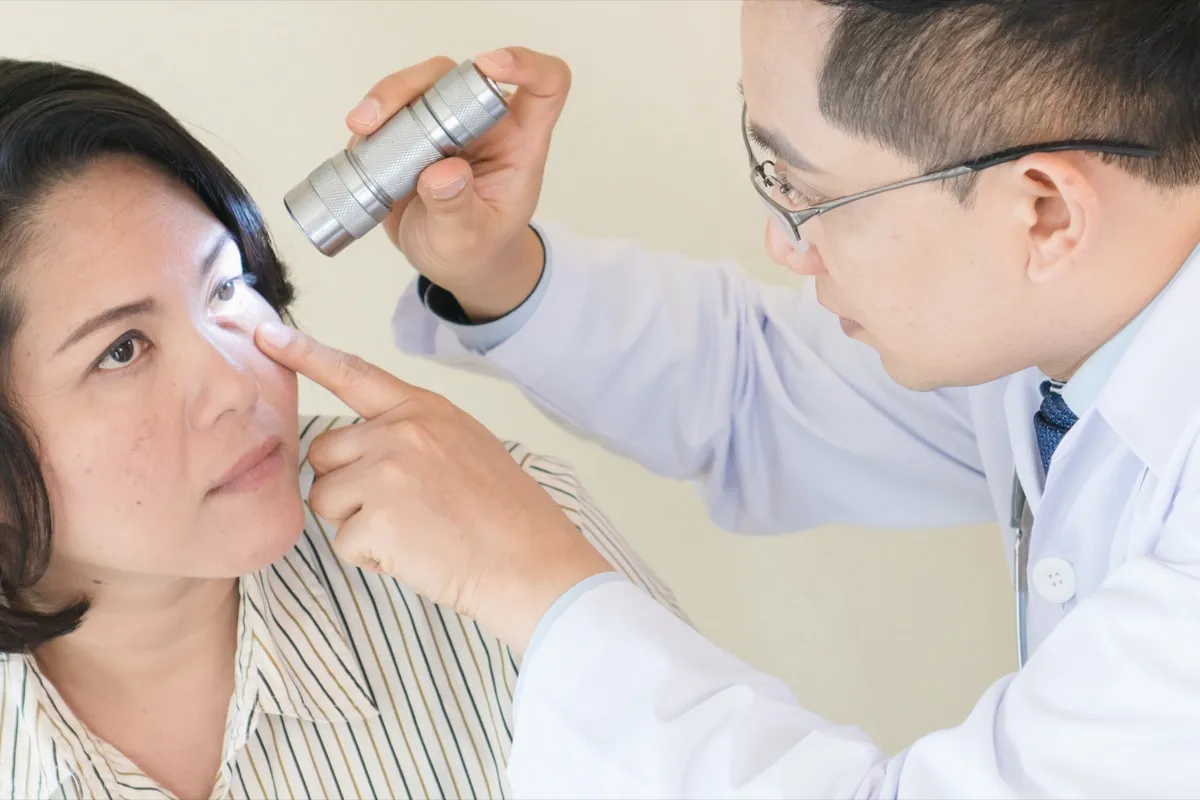
While dry eyes may not seem like a huge health crisis, they shouldn’t be ignored. “If left untreated, severe dry eye may damage the cornea,” Kelly warns. He says pain that gets worse, increasing blurry vision, redness, and discharge are all reasons to pay your eye doctor a visit. And if your dry eyes don’t respond to over-the-counter eye drops, that’s a red flag as well. “Other medical conditions, including but not limited to thyroid or autoimmune disease” may be behind your dry eyes.
“The best way to find the right balance is to seek a dry eye specialist or optometrist/ophthalmologist to moderate the treatment and track any progression,” Hildebrand advises.
Best Life offers the most up-to-date information from top experts, new research, and health agencies, but our content is not meant to be a substitute for professional guidance. When it comes to the medication you’re taking or any other health questions you have, always consult your healthcare provider directly.